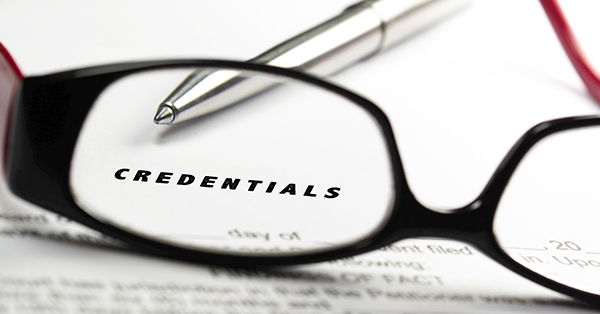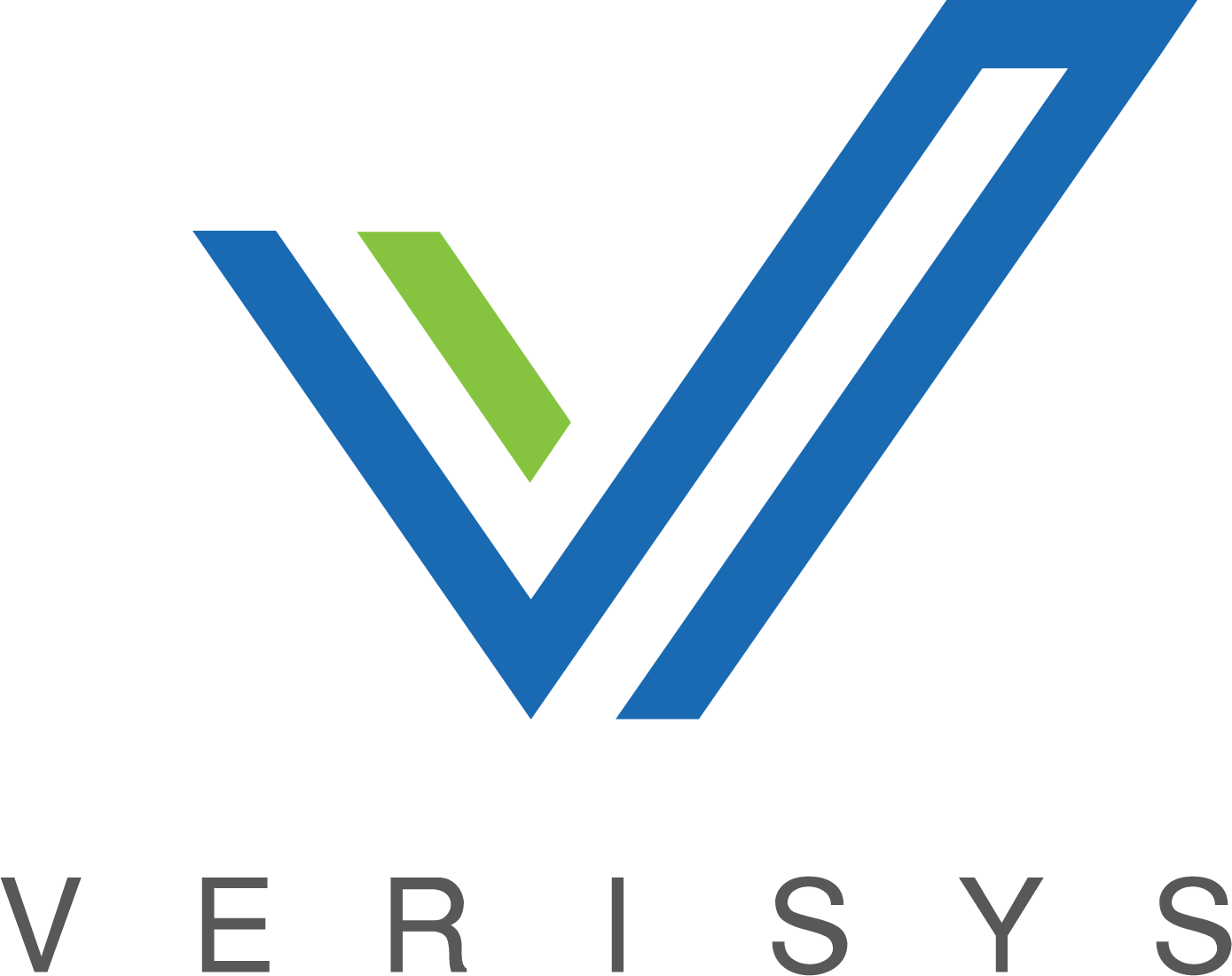– The best resource for monthly healthcare regulatory compliance updates. Compliance Updates: April 2024 Overlook: Licensure Compacts Other Legislation Board Updates Interstate Medical...


Proper credentialing keeps healthcare organizations running smoothly. Without continuous, verifiable credentialing, healthcare organizations risk their patients’ safety as well as the reputation and financial well-being of their own practices. Financial risks for improper credentialing can include fines, civil monetary penalties, litigation, malpractice claims, and other expensive consequences.
In 2019, the Government Accounting Office (GAO) reported that the Department of Veterans Affairs (VA) wasn’t doing enough to properly verify the credentials of their staff. The report from the GAO found that the VA hired or employed staff who were ineligible. Just as it’s important for the VA to credential their health professionals, healthcare organizations are also required to know the status of their providers to ensure high-quality patient outcomes.
Organizations that use accurate and current data for provider credentialing minimize risks to their patients. When patients undergo a medical procedure or share sensitive health information, they expect that their provider is fully vetted and credentialed and has the qualifications to diagnose and treat them.
Because patient safety depends on the right medical training and certification, accurate credentialing matters. Credentialing is a time-consuming process that involves primary source data verification, accurate identity matching, and ongoing monitoring of a multitude of state boards and data sources on medical providers. Many organizations rely on Credentials Verification Organizations (CVOs) to streamline the credentialing process and provide accurate, up-to-date information.
What is a Credentials Verification Organization? What Do They Do for Healthcare Organizations?
According to the NCQA, a non-profit CVO accreditation organization, a CVO is “an organization that conducts primary source verification of practitioner credentials for other organizations.” Hiring CVOs is a common practice for healthcare organizations seeking to reduce the administrative burden of credentials verification and is approved by The Joint Commission as a method of primary source verification.
CVOs work on behalf of their clients to gather all relevant information on new or current providers. This protects patients from potentially fraudulent or dangerous practitioners and ensures compliance with federal and state regulations. CVOs use primary source verification to obtain information about medical education and training, work history, licenses, and certifications. They also search thousands of databases, including sex offender and abuse registries.
Ongoing monitoring of your population is also necessary to maintain patient safety because it can uncover any new information about currently practicing providers. CVOs monitor databases for sanctions, exclusions, debarments, and other disciplinary actions. In addition to ongoing monitoring for exclusions, The Joint Commission provides guidelines for OPPE monitoring including chart reviews, external peer reviews, and discussions with patients.
How are CVOs Certified and What are the Benefits of CVO Certification?
Although certification is not required for CVOs to do business, it comes with significant benefits. A CVO that is certified and/or accredited has passed a rigorous evaluation process that proves it meets or exceeds industry standards.
These standards include a commitment to patient safety, thorough data collection and analysis, and continuous monitoring. Certification evaluations involve documenting organizational structures, procedures, and processes throughout the business and evaluating them against industry standards. Evaluation methods can include yearly audits, surveys, and questionnaires about the CVOs structures and existing processes, a review of error rates, and references from clients.
What Type of Providers Need Credentialing?
With so many different medical professions needing proper credentialing, it can be hard to keep track of who needs what. These can range from college and medical school degrees that never expire to credentials that need to be updated annually. The nursing profession alone houses nine different credentialing options for the position.
Some medical professions that need credentialing include:
Verisys is a Certified Credentials Verification Organization
A CVO saves organizations significant time and resources, mitigates risks of costly liability, increases patient safety, and creates a standard of industry compliance. Proper credentialing protects clients, patients, vulnerable populations, licensed professionals, and healthcare organizations. Hiring a CVO like Verisys is an important step you can take to improve the overall quality of care that patients receive.
Verisys is certified by NCQA and accredited by URAC, two of the leading accreditation organizations in the nation. Verisys’ SaaS-based solution screens and monitors provider credentials using primary source verification and highly sophisticated identity matching algorithms. Verisys also deals directly with providers to handle provider disputes and adverse event reporting, if necessary.
What You Need to Know Before Hiring a CVO
Not all CVOs are the same. When hiring a CVO, you should consider several factors in your decision. Your CVO should be recognized in the industry as a trusted partner so that you, your organization, and your patients can feel confident in the quality of your providers. You need a CVO that has a proven record of providing high-quality, up-to-date, and accurate provider data.
Over the last 29 years, Verisys has worked with industry-leading healthcare organizations on perfecting the credentials verification process and has cultivated strong relationships with licensing boards and primary sources. Verisys was founded by the former Assistant Secretary and Deputy Undersecretary to the Department of Health and Human Services (DHHS) and the former DHHS Inspector.
As a CVO certified by NCQA and accredited by URAC, Verisys maintains an exceptional standard of quality in primary source verification, actionable insights, reporting, and timeliness in delivery. Other certifications include ISO 9001:2015, ISO 27001:2013, AICPA SOC 2, FCRA Compliant, and HITRUST CSF (in process).
To ensure excellence, URAC requires that CVOs meet 40 core standards with specific requirements that address credential verification processes, data integrity, communications, and on-site reviews. The accreditation infrastructure includes:
Currently, Verisys provides services to thousands of healthcare organizations across the country, representing millions of healthcare providers, such as hospitals, pharmacies, skilled nursing facilities, assisted living facilities, home health programs, hospice, government entities, health plans, and pharmaceutical companies, while delivering a consistently high level of customer service across the following areas:
Is your organization interested in learning more about how Verisys can help keep your patients safe, mitigate financial risks, and keep you in compliance with all state and federal program requirements? Verisys, a certified and accredited credentials verification organization, provides primary source verification and continuous provider monitoring that can streamline your credentialing process and give you peace of mind. Contact us today.
 |
Written by Verisys Verisys transforms provider data, workforce data, and relationship management. Healthcare, life science, and background screening organizations rely on our comprehensive solutions to discover their true potential. Visit verisys.com to learn how we turn problems into power.
|